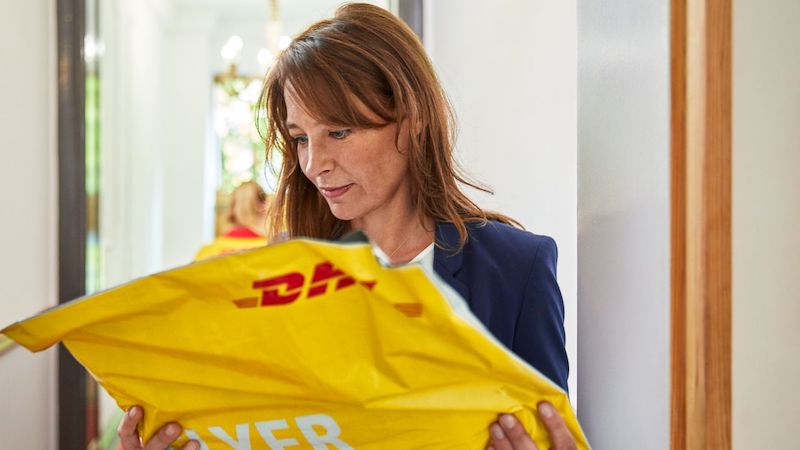Grow your business with the Discover newsletter
Logistics advice & insights straight to your inbox
Subscribe now
Are you considering expanding your business horizons to the Netherlands? You're not alone.
The Netherlands has long been a magnet for international companies seeking a European base. After all, this small yet economically robust country is known for its open trade culture and welcoming attitude toward foreign entrepreneurs. With its strategic location within the European Union (EU) and well-developed infrastructure, the Netherlands offers a favourable environment for businesses to flourish.
To leverage the opportunities for your business, you’ll need to take the first step – understanding the intricacies of shipping to this European destination. These include navigating customs regulations, complying with trade agreements, and ensuring efficient logistics.
If you’re new to international trade, let this guide assist you in the shipping process from Singapore to the Netherlands. Dive into these insights to ensure your entry into the Dutch market is seamless.
In order to expand your horizons into the Dutch market, it is crucial to understand Singapore's trade relationship with the Netherlands.
According to the European Commission, Singapore stands as the Netherlands' 9th largest trade partner outside the EU, with the Netherlands boasting a trade surplus of €1.3 billion in this partnership. On the other side of the ledger, Dutch imports from Singapore amount to a significant €4.4 billion.
Some of Singapore's top exports to the Netherlands, as listed by Trading Economics, include:
These exports underscore the robust trade relationship between Singapore and the Netherlands, making it an attractive proposition for businesses seeking to make their mark in this overseas market.
Businesses eyeing the Netherlands as a potential market can harness the advantages offered by Singapore's bilateral agreements with the country.
In this case, there are two key agreements in play: the EU-Singapore Free Trade Agreement (EUSFTA) and the Avoidance of Double Taxation Avoidance Agreement (DTA).
These agreements simplify trade, reduce tax complexities, and create a conducive environment for businesses to expand their operations in the Netherlands.
The EUSFTA is a game-changer for businesses eyeing the Netherlands as their trade partner. This agreement creates a multitude of opportunities by simplifying trade processes and reducing various barriers.
Some of the key advantages of trading with the Netherlands with EUSFTA:
Bilateral tax agreements have also been established to prevent double taxation on income, capital, and other taxable units. These agreements, known as DTAs, enable companies and individuals operating in both nations to optimise their tax payments, ensuring they only pay taxes in one of the countries.
DTAs come in several types, including comprehensive DTAs, which Singapore has established with the Netherlands. Unlike Limited DTAs that only provide relief from income generated from air transport and shipping, comprehensive ones provide relief from double taxation for all income types between the two signatories.
In the case of the Netherlands–Singapore DTA, existing taxes to which this Convention shall apply are:
In the Netherlands:
In Singapore:

When shipping goods to Europe, specifically to the Netherlands, it's crucial to understand and adhere to customs regulations to ensure smooth entry into the market.
Here's a handy checklist for businesses looking to send parcels from Singapore to the Netherlands:
To import into the EU, you typically need to be established as a company or have a permanent business presence in the EU. This includes Value Added Tax (VAT) registration.
Non-EU residents must have a work permit for independent commercial activities and find an EU-based representative, like a logistics service provider or customs agent.
Registration with the national commercial register may be required, and an Economic Operators Registration and Identification number (EORI number) (valid throughout the EU) is essential.
Be aware of import tariffs that may apply to your product when entering the EU. Import tariffs are charges imposed on certain goods upon entry into the EU, and can vary depending on the type of product and its classification.
In many cases, the responsibility for covering these tariffs falls on the importer. However, the specifics of this arrangement depend on the agreement made between the importer and the seller.
Suppliers may need to provide proof of the product's origin, usually in the form of a certificate or declaration issued by an authorised exporter.
Be aware of trade defence measures that may apply, such as antidumping duties. Check with EU customs authorities to determine if any additional duties affect your product.
VAT applies to goods sold in the EU and is typically paid by the importer. Excise duties may apply to specific goods like tobacco, alcoholic beverages, and energy products.
Prepare a customs declaration for your national customs authority.
An Entry Summary Declaration (ENS) should be submitted before the goods arrive in the EU.
Use the Single Administrative Document (SAD), a common import declaration form for all EU countries, like the Netherlands.
Depending on the goods, additional documents may be required, such as commercial invoices, transport documents, certificates of origin, and inspection certificates.
Be aware that the Netherlands prohibits or restricts the importation of various items, including waste materials, radioactive substances, cash above a threshold, counterfeit articles, protected animal and plant species, weapons, medicines, cultural goods, and more.
When it comes to shipping to cities like Amsterdam in the Netherlands or anywhere in the world, DHL Express Singapore is your trusted partner for seamless delivery. Our expertise in international shipping to the Netherlands is unmatched, making us the preferred choice for businesses in Singapore looking to thrive in the Dutch market.
Ready to take your business to new heights? Start shipping overseas from Singapore with us today and experience the DHL Express difference. Create a DHL account now and unlock a world of shipping opportunities.